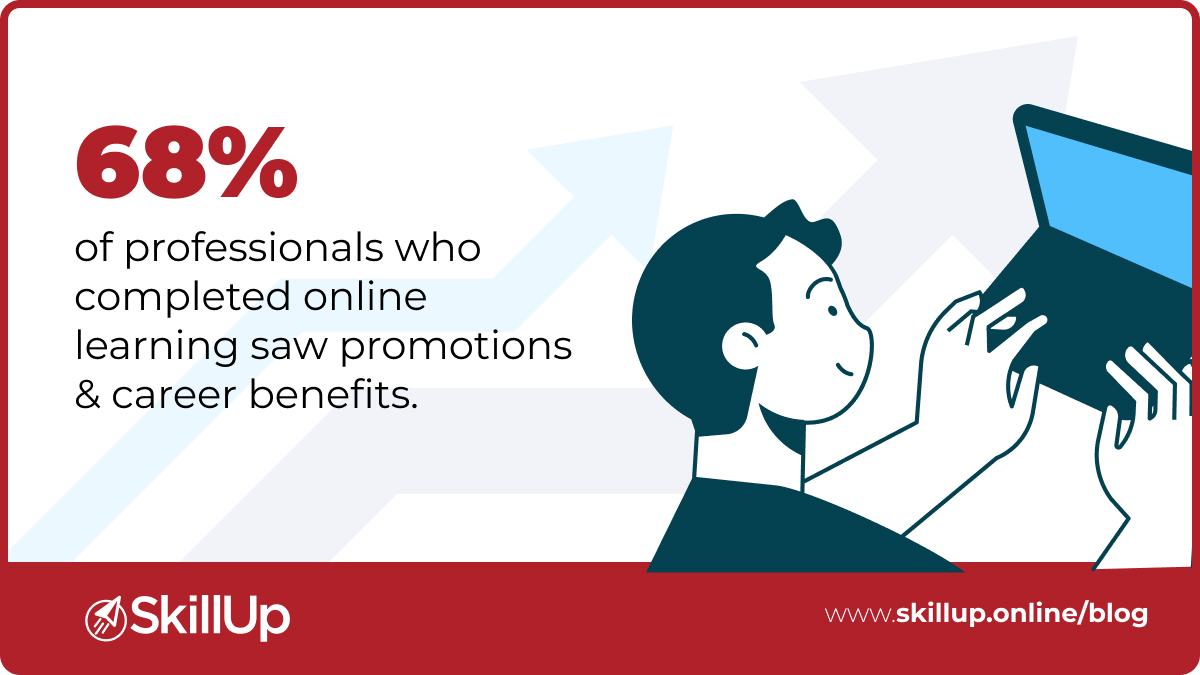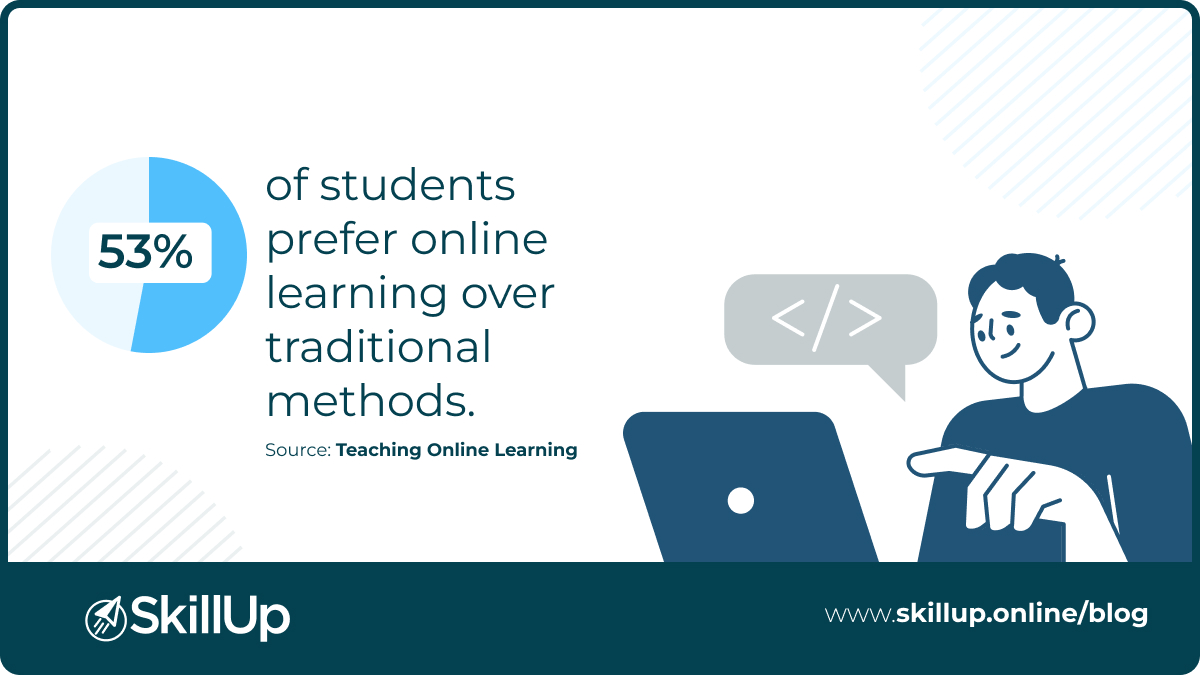IT students and pros today face a unique challenge: Future skills like Artificial Intelligence, Big Data, Cyber Security, Blockchain, and the like are moving too quickly for most university curricula and even enterprise-level businesses to keep pace. Many top tier institutions are turning to business leaders in these fields to help build and update these certifications in real-time.
While these companies are managing the heavy lifting when it comes to building a common understanding of what constitutes “expertise” in each discipline, they all tend to focus exclusively on their technology.
From Microsoft’s MPP program to Amazon’s AWS coursework, it’s led to a virtual hodgepodge of branded certifications that look at the technology in question through the proprietary lens of their own making. As an IT Professional or Student, it can be overwhelming. Which certifications are the most important and from who? Will investing in the right certifications help me earn more money? Does it matter which certifications I choose to take in the end or do employers just want to know the foundational info?
What we need is an IT certification road map – a digestible, yet comprehensive list of IT certifications that give us an idea of how important each one is. Of course, in the long run, it’s all relative. It does no more good for a front-dev to invest heavily in big data than it would for a sloth to invest in running shoes.

Without further ado, here’s the full guide.
AI / Machine Learning Certifications
With AI defining the next generation of software solutions, IT students and professionals need the right study track to become proficient in the skills needed to become AI engineers and build deep learning predictive models for AI solutions.
Microsoft Professional Program Certificate in Artificial Intelligence (SkillUp Online)
The Microsoft Professional Program Certificate in AI is a comprehensive study program of the core fundamentals and applications of AI in business scenarios. There are a plethora of courses to choose from ranging from the basics of Machine learning, Natural Language Processing (NLP) and Speech Recognition Systems to Essential Math for Machine Learning: Python Edition, Deep Learning Explained and Computer Vision and Image Analysis.
The course uses a mix of hands-on activities and engaging lectures to immerse candidates in the exciting field of AI and help them acquire the skills needed to build smart apps and predictive models.
Other notable AI/ML certifications include
- Machine Learning at Udacity
- CSCI E-81 Machine Learning and Data Mining
- Microsoft Professional Certification in Artificial Intelligence
- Artificial Intelligence (AI) Certification by Columbia University
- Artificial Intelligence A-Z: Learn How To Build An AI (Udemy)
- Advanced AI Tutorial: Deep Reinforcement Learning in Python (Udemy)
- Machine Learning AI Certification by Stanford University (Coursera)
IoT Certification
With industry experts predicting the explosive growth of IoT devices and applications, there is a growing demand for IoT professionals. Most jobs around IoT center around creating new devices, coming up with innovative applications and managing security. Whether you’re an IT professional looking to change careers or a student looking to add IoT skills to your portfolio, the following certifications can help you achieve your objectives.
Microsoft Professional Program for IoT
Microsoft’s Professionals Program for IoT takes candidates through the various aspects of the IoT ecosystem from data analytics and IoT architecture design to business planning and programming devices. The entire program consists of 8 courses and certificates are presented at the end of each course.
Internet of Things Foundation (IoTF) certification
The Cloud Credential Council’s IoTF certification is aimed at application developers, system administrators, and software engineers who want to understand the components and terminology of IoT from a technical and business perspective. The IoT Foundation certifies that successful candidates possess high-level competencies and the requisite lexicon for early adoption phases. While there are no prerequisites to obtaining this certification, candidates should be familiar with cloud terminology and concepts.
You can also check out the well-known Certified IoT Professionals Program by IoT Inc.

Data Science Certifications
As data science continues to top the list of IT-related careers, IT students and professionals looking to stand out from the crowd should improve their portfolios with relevant certifications. While data science is essential to virtually all companies and industries, the specific skills that recruiters are looking for will vary across industries.
We’ve prepared a list of some of the best data science certifications based on an informal analysis of the type of certifications employers really want. Here’s the list
SAS Certified Data Scientist
SAS provides enterprises and businesses with a robust suite of business analytics software and services. Its certification program offers a range of credentials across business intelligence, advanced analytics, information and data management, and validates the individual’s knowledge and skill in using its massively popular proprietary software systems.
Before becoming a SAS Certified Data Scientist, candidates must pass 5 exams which test their skills at manipulating big data using SAS and other open-source tools, making business recommendations, and using complex machine learning models. Other certifications include SAS Certified Advanced Analytics Professional and Certified Big Data Professional Using SAS 9.
MongoDB NoSQL certifications
MongoDB is suitable for most big data projects as it lends itself to easy management of large reams of loosely structured data. The company offers two associate-level credentials to recognize professionals and developers who can create and run applications on its platform. These credentials are MongoDB Certified DBA and MongoDB Certified Developer. These credentials are well suited for IT students and professionals interested in NoSQL databases and big data projects.
CAP: Certified Analytics Professional (INFORMS)
The Certified Analytics Professional (CAP) is a vendor-neutral certification which focuses on seven domains of the analytics process:
- Business problem framing
- Analytics problem framing
- Data
- Methodology selection
- Model building
- Deployment
- Model lifecycle management

Candidates must possess
- A BA/BS degree or MA/MS degree in an analytics-related area
- A minimum of 7 years professional analytics-related experience with a BA/BS degree or higher that’s not related to analytics, 5 years experience with an analytics related BA/BS degree or 3 years of professional analytics-related experience with an MA/MS degree related to analytics
- Supervisory confirmation of demonstration of acceptable soft skills
Other notable big data certifications include
- Microsoft’s Data Management and Analytics certification
- Cloudera’s Certified Professional Data Engineer (CCP Data Engineer)
- IBM Certified Data Architect
- Dell Technologies Data Scientist Advanced Analytics Specialist (DCS-DS)
- Dell Technologies Data Scientist Associate (DCA-DS)
- HDP Data Science
- Microsoft Professional Program in Data Science
- Microsoft Certified Azure Data Scientist Associate
- Microsoft MCSE: Data Management and Analytics
- Stanford’s Data Mining and Applications graduate certificate.
DevOps Certifications
With organizations in today’s complex marketplace looking to beat the competition by rapidly delivering better and better digital products, development and operations teams are under increasing pressure to create market-ready applications in ever decreasing time frames. The DevOps framework was created to reduce friction between these two departments and deliver on company objectives.
DevOps Agile Skills Association certifications (DASA)
The DASA DevOps Fundamentals certifications provide you with an extensive introduction into Agile DevOps principles and cover basic knowledge and skill competencies. It was designed for anyone looking to implement DevOps and Agile strategies within their organization. After obtaining the fundamentals certification, candidates can go on to acquire DASA’s DevOps Practitioner certification. This builds on the knowledge imparted by its predecessor and focuses on imbuing candidates with the following skills: courage, team-building, DevOps leadership, and continuous improvement.
Other DevOps certifications include
- AWS Certified DevOps Engineer Professional Exam
- Microsoft Azure DevOps Solutions Certification Exam
- Puppet Certified Professional (PCP)
- Docker Certified Associate
Blockchain Certifications
With blockchain continuing to disrupt traditional business processes and corporate structures, the demand for blockchain skills is on the rise. Whether you’re looking to demonstrate your knowledge of blockchain technology, test and hone your abilities as a new grad or acquire some skills as a beginner, the following blockchain certifications will work for you.
Blockchain Training Alliance (BTA)
In conjunction with Pearson VUE, the BTA offers three blockchain certifications:
- Certified Blockchain Developer – Hyperledger Fabric (CBDH)
- Certified Blockchain Developer – Ethereum (CBDE)
- Certified Blockchain Solution Architect (CBSA)
CBDH certification
The Certified Blockchain Developer – Hyperledger Fabric (CBDH) certification validates the ability of candidates to
- Build production-ready applications for Hyperledger blockchain.
- Create and deploy secure chain code.
- Write chain code using NodeJS or Go.
- Rapidly build Hyperledger applications using Hyperledger Composer.
Before writing the exam, candidates should have extensive Hyperledger development experience or complete the Developing on Hyperledger Fabric course.
CBDE certification
The CBDE certification confirms the candidate’s ability to
- Effectively use the requisite tools and systems to work within the Ethereum blockchain ecosystem
- Create production-ready applications for the Ethereum blockchain.
- Create and deploy secure smart contracts.
CBSA
Holding a CBSA certification demonstrates your ability to
- Architect blockchain solutions
- Work effectively with blockchain engineers and technical leaders on both public and permissioned blockchain systems.
Before writing the CBSA exam, it is recommended that candidates either have extensive knowledge and experience in blockchain implementation or attend the Blockchain Architecture Training course.
Other notable blockchain certifications include
- Blockchain for Business Course by The Linux Foundation (edX)
- DCC Certification
- Certified Blockchain Professional (CBCP)
- Blockchain for Technical Executives and Analysts
- Ethereum Developer Course
- Certified Bitcoin Professional (CBP)
Cybersecurity
When interviewing IT professionals for cybersecurity roles, employers typically look to certifications as a measure of ability and excellence. There are tons of cybersecurity certifications ranging from vendor-neutral ones offered by EC-Council, (ISC)2 and CompTIA to vendor-specific certifications from SonicWall, Juniper, Cisco, etc.
These certifications will help IT students and professionals increase/validate their cybersecurity skillsets, launch their cybersecurity career and meet continuing education requirements. Here are some of the most sought-after certifications in the cybersecurity space.
CISCO
CCNA Security
CCNP Security
CCIE Security
CCNA Cyber Ops
SONICWALL
SNSA – Sonicwall Network Security Administrator
SNSP – SonicWall Network Security Professional
CHECKPOINT
CCSA – Check Point Certified Security Administrator R80.20
CCSE – Check Point Certified Security Expert R80.20
PALO ALTO NETWORKS
PCNSA – Palo Alto Networks Certified Network Security Administrator
PCNSE – Palo Alto Certified Network Security Engineer
JUNIPER
JNCIS-SEC – Juniper Networks Certified Internet Specialist
JNCIP-SEC – Juniper Networks Certified Internet Professional
(ISC)2
SSCP – Systems Security Certified Practitioner
CCSP – Certified Cloud Security Professional
CISSP – Certified Information Systems Security Professional
CAP – Certified Authorization Professional
CompTIA
Security+
CySA+ – Cybersecurity Analyst+
CASP+ – CompTIA Advanced Security Practitioner
EC-COUNCIL
CEH – Certified Ethical Hacker
CHFI – Computer Hacking Forensics Investigator
CND – Certified Network Defender
Wrapping up
Whether you are a student or an employee of a healthcare organization, the government, a small business, an enterprise or any organization that employs IT professionals, getting certified is a surefire way to advance your career. These certifications support professional development, confirms knowledge gains and saves companies the time and hassle of evaluating candidates.
To help prepare the next generation of technologists, SkillUp Online provides an ideal learning platform for IT students and professionals looking to acquire knowledge and become proficient in the most in-demand technology skills like Artificial Intelligence, Data Science, DevOps, Cloud & many more.
By investing in the right certifications, students and IT professionals can validate their skills and knowledge and fast track their success to the front of the pack. Launch your career in the emergent technology space by leveraging our courses and learning tools today.





